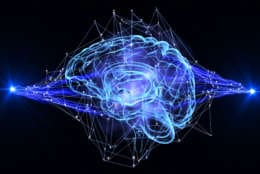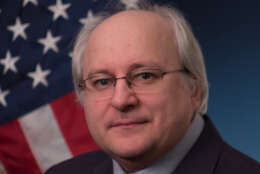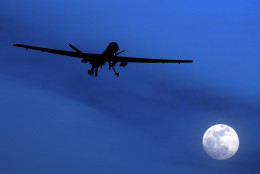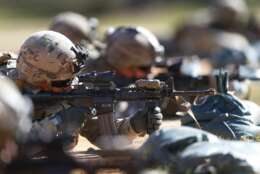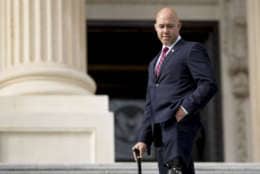Hubbard Radio Washington DC, LLC. All rights reserved. This website is not intended for users located within the European Economic Area.
Defense Advanced Research Projects Agency
-
For years, Dr. Tim Persons has been at the vanguard of examining emerging technology, and whether it can benefit the federal government and its operations.
November 15, 2021 -
The NGA is trying to flip the script on how U.S. spy agencies consider geospatial intelligence sources.
September 16, 2021 -
A recent award by the Defense Advanced Research Projects Agency to the University of Massachusetts is aimed at advancing machine learning in a way that mimics the human mind.
April 15, 2021 -
Nearly every agency technology modernizing effort runs into the same hill: How to replace legacy code. Now the Defense Advanced Research Projects Agency has launched a project to discover ways to replace this code incrementally but steadily.
September 14, 2020 -
In today's Federal Newscast, House Majority Leader Steny Hoyer (D-MD) tells his colleagues what may seem inevitable: a continuing resolution is the likely outcome ahead of the upcoming government funding deadline.
September 01, 2020 -
In today's Federal Newscast, the Census Bureau needed to hire 300,000 enumerators but fell well short of that goal.
August 21, 2020 -
DoD is experimenting with ways to improve autonomy in unmanned vehicles, and build trust in that autonomy between the platforms, their operators and the commanders that will deploy them.
August 19, 2020 -
Undersecretary of Defense for Research and Engineering Michael Griffin and Lisa Porter, who is the deputy, will step down July 10.
June 23, 2020 -
The Defense Innovation Unit made significant strides in increasing the number of commercial prototypes that made it into warfighters’ hands and quickening the pace to award contracts in 2019.
May 20, 2020 -
Artificial intelligence, supercomputing and advanced data analytics will play a significant role in the Trump administration’s long-term response to the coronavirus.
March 25, 2020 -
In today's Federal Newscast, after a delay, the White House publishes a memo allowing the defense secretary to to exclude civilian employees from current collective bargaining law.
February 21, 2020 -
As for what federal agencies actually spent on AI research last year, the White House expects to release those numbers later this year.
February 11, 2020 -
In today's Federal Newscast, Rep. Brian Mast (R-FL) and other congressmen are pleading with Veterans Affairs Department to let them keep their offices in agency facilities.
September 23, 2019 -
Seli Agbolosu-Amison, Cybersecurity Data Scientist at NetCentrics, says the quantum cryptography may very well emerge as a turning point in the history of cybersecurity.
June 05, 2019



